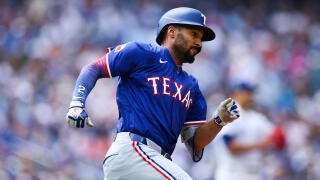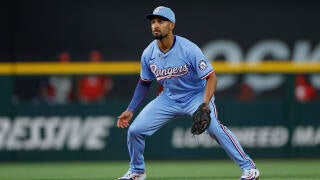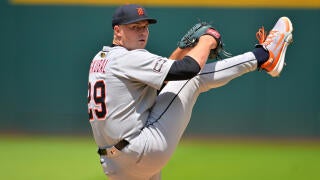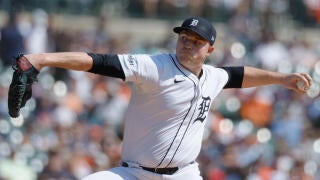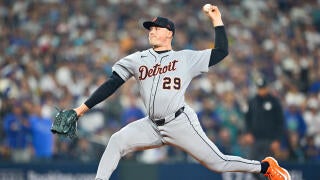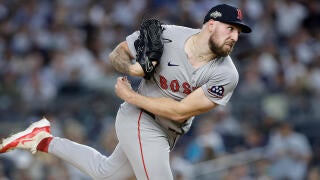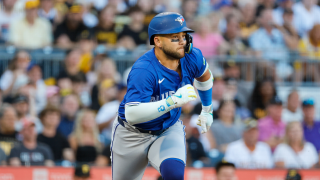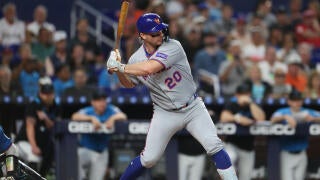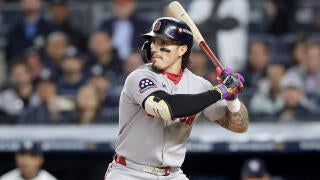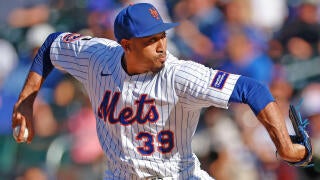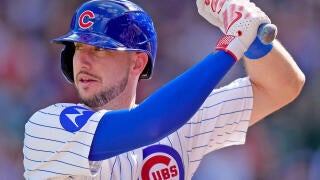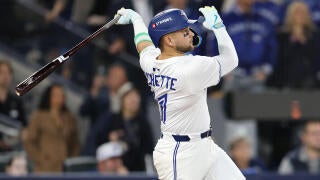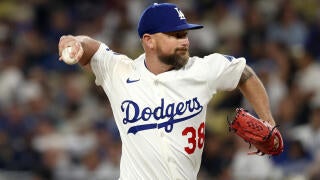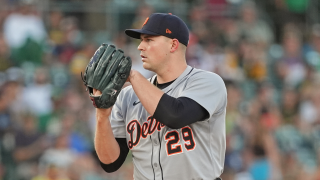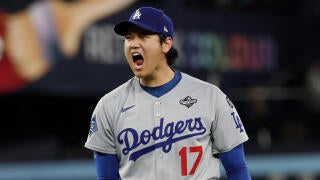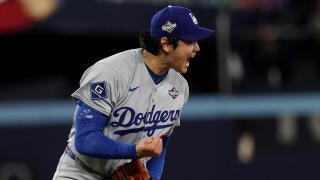The Los Angeles Dodgers are moving on. The Chicago Cubs are staying alive. The Dodgers and Cubs were winners against the Phillies and Brewers, respectively, on Thursday night in NLDS Game 4s. The Dodgers ended the Phillies' season, ousting the NL East champs with an 11-inning win that ended on a walk-off error. The Cubs, meanwhile, powered past the Brewers at Wrigley Field to force a decisive Game 5 on Saturday.
The reigning champion Dodgers are back in the NLCS for the second year in a row after outlasting the Phillies in a tense, extra-inning pitchers' duel. Tyler Glasnow threw six scoreless innings and Roki Sasaki had three perfect innings of relief as Dodgers pitchers matched Cristopher Sánchez, Jhoan Duran and Phillies' pitchers until they won it in the 11th. Phillies reliever Orion Kerkering made a season-ending error on a grounder back to him with two outs and the bases loaded.
In Chicago, the Cubs went up early on Ian Happ's three-run home run, and they didn't look back. The Cubs won back-to-back games at Wrigley Field and now head back to Milwaukee to try to complete the comeback and win the series.
Thursday's MLB playoff scores
- NLDS Game 4: Dodgers 2, Phillies 1 (11) -- Los Angeles wins series 3-1
- NLDS Game 4: Cubs 6, Brewers 0 -- Series tied 2-2
Winner: Roki Sasaki
A few days ago, Dodgers manager Dave Roberts conceded that rookie right-hander Roki Sasaki was his new primary choice to close out games. Sasaki, who had an uneven first year in the United States, was called upon during Thursday's latter stages against the Phillies. He delivered.
Sasaki ran roughshod through the Phillies lineup, throwing three perfect innings on 36 pitches that served two purposes. Foremost, he bought his offense additional time to score a run. But, just as importantly, he minimized the potential exposure effect on the leakier parts of the Dodgers bullpen.
Sasaki's success stemmed in part from the simplified approach he's used since returning to the big leagues in September. He threw more splitters than four-seamers on Thursday, and his heater clocked in at 99.5 mph on average, or three ticks above his seasonal average. The Phillies could do nothing with either, as he generated eight whiffs on 25 swings.
Winner and loser: Viewers
On the one hand, Dodgers-Phillies Game 4 might've been the best game of the postseason. It had almost everything you could want from a contest. Good defense. Great pitching. Big names. High stakes. A raucous crowd. Some highly memorable moments. This was, in the modern parlance, an instant classic. Lest you doubt its historic standing, it's only the second postseason series to ever end with a walk-off error.
On the other hand, Game 4's conclusion means there will be no Game 5 between these teams.
Would they have been able to match or exceed Game 4's sheer entertainment value? Probably not. But it's fair to write that these were two of the best teams in baseball, and it's going to be hard for any subsequent matchup to put on a better game the rest of this month.
Loser: Phillies' championship hopes
Again, Game 4 was an instant classic. It's a shame that either side had to lose. That said, this is a particularly tough loss for the Phillies as it ends their season. Despite winning 96 games and finishing just a game shy of having the top overall seed in the majors, the Phillies will head into an uncertain winter without a series victory to their credit for a second consecutive year.
The way it played out was heart-wrenching, too.
The Phillies were in the driver's seat after taking a 1-0 lead in the top of the seventh inning. Lefty Cristopher Sánchez was rolling and was permitted to begin the bottom half of the frame. When Sánchez worked his way into traffic, manager Rob Thomson played it smart by inserting closer Jhoan Duran with one down and two out against the bottom of the order.
Duran would retire Andy Pages, and would then intentionally walk Shohei Ohtani -- a defensible decision given the situation.
Alas, Duran walked in Mookie Betts to tie the game at 1-1. The Phillies bullpen would hold strong for the next three-plus innings, yet the offense could muster only one baserunner over that span. Obviously that didn't prove to be a winning combination.The Phillies now have a lot of questions to answer this winter, beginning with what they'll do with their top free-agent stars: designated hitter Kyle Schwarber, catcher J.T. Realmuto, and left-handed starter Ranger Suárez. For now, though, you can excuse them if they just want to take a few days to process how their season ended.
Winners: Cubs pitching, Ian Happ, Kyle Tucker
Matthew Boyd had a brutal outing in Game 1 of this series, not getting out of the first inning. Yes, the Cubs defense hurt him with an uncharacteristic error, but he gave up six runs and the game was never close after that. This time around, Boyd was in control. He kept the Brewers off the board for 4 ⅔ innings, closing with a huge strikeout. The bullpen behind Boyd did the job, too, with the usual suspects Daniel Palencia, Drew Pomeranz, Brad Keller and Caleb Thielbar locking things down.
Offensively, two Cubs hitters in particular had encouraging nights.
Ian Happ entered the game having gone 2 for 21 with 11 strikeouts so far in the playoffs this year. He hit a three-run home run in his first-inning at-bat here. He hit the ball another two times later in the game.
Kyle Tucker had been 5 for 20 in the playoffs, but all his hits were singles. This came after he was 1 for 11 with a single in his three games before the playoffs after having missed a few weeks with a calf injury. The power just wasn't there and Tucker needs that to be himself. When he's on, he's a marquee player.
Tucker homered in the seventh.
Michael Busch also homered, but what else is new? He's been one of the hottest hitters in baseball for weeks. The Happ and Tucker shots are what give the Cubs more hope going to Game 5.
Losers: Brewers clutch hitting
The Brewers come through in the clutch more than most teams. The were second in batting average with runners in scoring position in the majors in the regular season. They were second with runners in scoring position and two outs. They had the highest percentage of baserunners to score. Their batting average was a ridiculous 30 points higher with runners in scoring position compared to no runners on base. In the first two games of this series, the Brewers feasted.
In Game 1, they were 7 for 17 (.412) with runners in scoring position. They scored nine runs without even hitting a home run. In Game 2, they were 2 for 3. In Game 3, they even made it close by going 2 for 9.
Here in Game 4, the Cubs scored three runs in the first and then didn't score again until the sixth. The proverbial door was left open for the Brewers to storm though, much like they did after the Cubs took leads in Games 1 and 2.
Instead, the Brewers went 0 for 4 with runners in scoring position, leaving six runners on. A particularly big spot came in the top of the fifth. Sal Frelick had a leadoff double before a Blake Perkins walk. After a sac bunt moved the runners to first and second, the Brewers had a prime scoring opportunity with the top of the order coming to bat. Christian Yelich struck out and Jackson Chourio popped out. It was only 3-0 Cubs at the time.
That's just how Game 4 went for the Brewers and it's one of the reasons they'll need to face elimination in a winner-take-all Game 5 after taking a 2-0 lead in the series.


